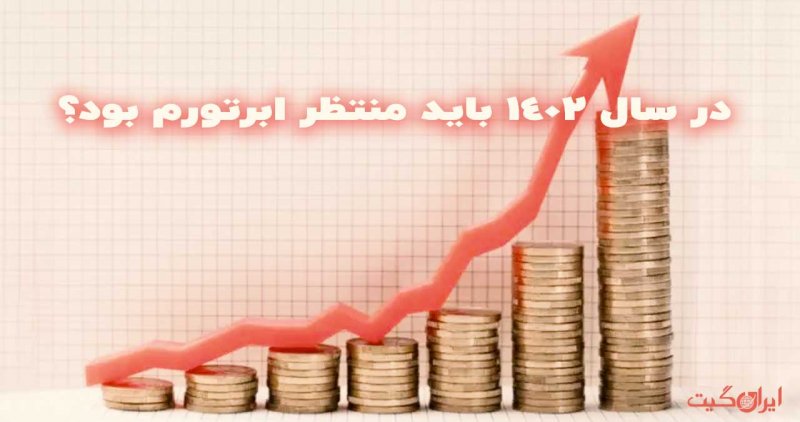In the year 1402, we should expect hyperinflation.
In the year 1402, we should expect hyperinflation. According to Iran Gate, details recently released from the budget indicate the government’s determination to expand the 1402 budget bill compared to the current year. Statistics and figures suggest that government expenses will increase by more than 800 trillion tomans. As a result, it is expected that the government’s current budget will be around 2 quadrillion tomans, which means a growth of about 65% in government expenses compared to the current year.
The approximately 65% growth in the government’s budget for the year 1402, which will likely become significantly larger after passing through the parliament, has become a new concern for economists for the coming year. On the other hand, the budget for state-owned companies, which has always taken a large share, has reached 3 quadrillion tomans for the next year. This figure indicates a definite and large budget deficit for the government in 1402.
Disorder in budgeting and the recurring issue of printing money.
Experts’ concerns regarding the details released from the 1402 budget bill generally revolve around the runaway inflation rate. In fact, critics of the economic policies of the thirteenth government believe that such an approach will ultimately lead to the government borrowing from the central bank. Borrowing means the issuance of money and the growth of the monetary base, which is the main source and cause of the devaluation of the national currency and the intensification of inflation.
The courage that is lacking.
Some economists supporting the concept of a free market believe that the thirteenth government neither has the motivation to reform the budgeting system nor is there any courage to make structural and serious reforms in cabinet decisions. For example, the most important reform that could be effective is the separation of the foreign exchange budget from the rial budget.
Many economists believe that in a situation where oil revenues are at their lowest, the Ebrahim Raisi government cannot proceed with budgeting with the extravagance that has always existed in the country’s management. Therefore, experts believe the government should first separate these two budgets so that neither the cabinet falls into delusion about its income and expenditure nor tries to mislead public opinion in this way.
If this action takes place, considering the country’s foreign exchange revenue situation, we will face a significant budget imbalance. An imbalance that has several ways to be compensated, generally referred to as borrowing. In fact, with this action, the real amount of the government’s borrowing from the central bank or from the issuance of bonds will be determined. Borrowing that is currently happening, but the real share of the government from borrowing and consequently the intensification of inflation is not yet clear.
A complication called Nima exchange rate.
But the strange point about the 1402 budget is the astonishing decision to fix the Nima exchange rate at around 28,500 tomans. Even stranger is setting the dollar price at 23,000 tomans for imports, which experts believe can lead to increased corruption.
This action, which was previously experienced in 2018 and led to problems arising from setting the 4,200-toman rate for preferential exchange, is now being repeated in a different form with a populist cover. Of course, this policy was implemented before during Ahmadinejad’s government at a price range of 1,200 tomans, which led to disastrous results, including the emergence of figures like Babak Zanjani, whose case remains unresolved.
In other words, if the Raisi government and the central bank intend to fix the Nima rate, we should expect heavy costs arising from increased corruption in people’s daily lives, as the difference between this 23,000-toman rate and the free market dollar price must be paid out of the pockets of people whose investments are currently entrusted to the thirteenth government.
Hyperinflation is serious.
Given the signals received so far from the 1402 budget bill, it is expected that inflation will intensify in the coming year, becoming certain and serious. The most optimistic economists predict it to be in the range of 65 to 70 percent for 1402, but there is also a pessimistic view that sees a scenario of triple-digit inflation rates for the coming year in the future of Iran’s economy.
However, logically and in the absence of changes in Iran’s policies regarding the JCPOA and even the FATF, it is expected that in the best conditions, the annual inflation rate for 1402 will exceed 70 percent, meaning the speed of rising consumer goods prices for the public will double in the coming months.
The following articles related to this writing have been published on Iran Gate.
- Raisi’s Inflation or Iran’s Inflation.
- Iran’s Banking System is Bankrupt.
- The 1402 Budget: A New Masterpiece of the Raisi Government.

